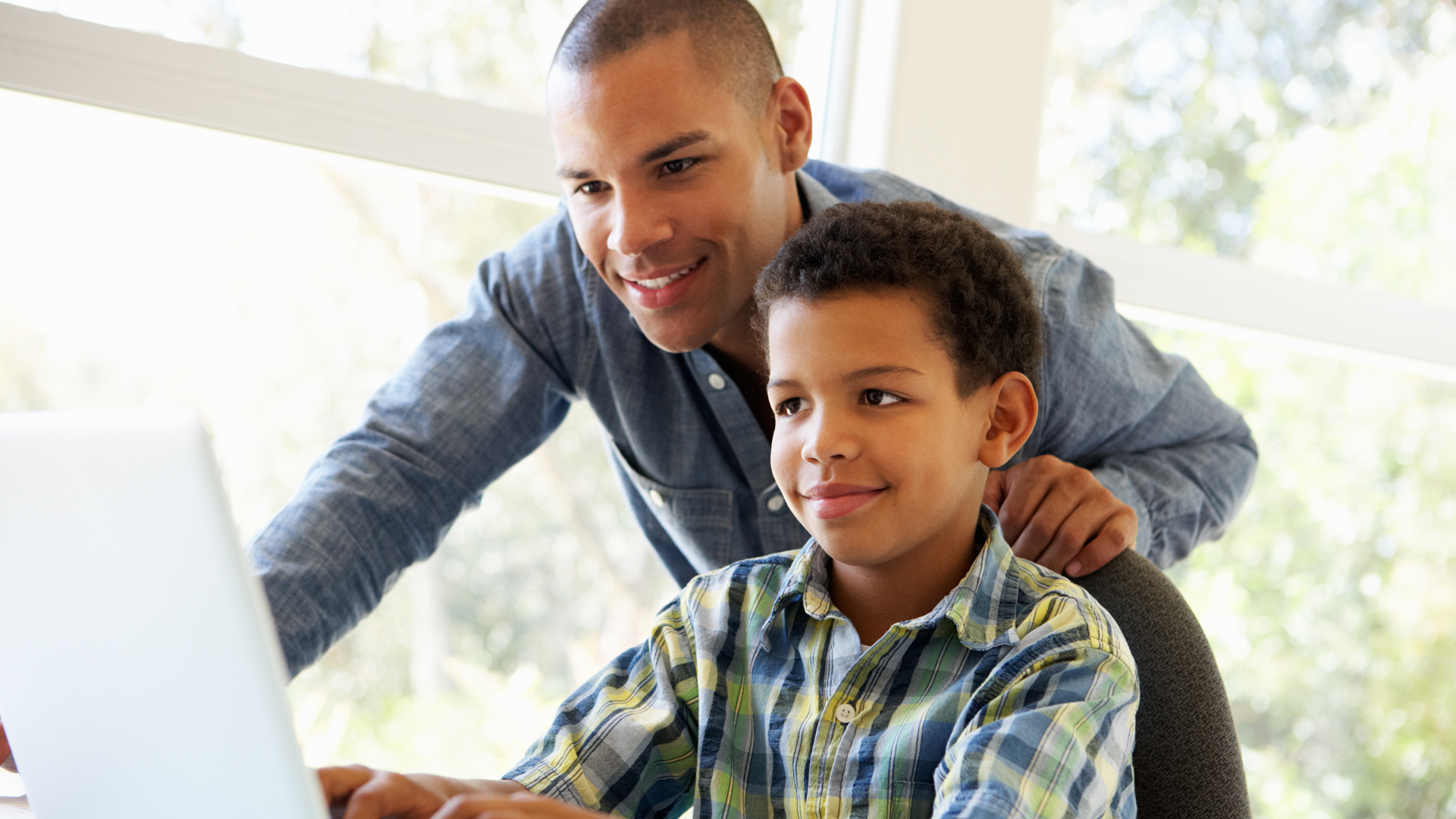Teens, Tweens, and Screens: 7 Actions to Help Kids Navigate Life Online
When parents become involved with kids’ media lives, kids consume less and understand more of what they consume. Here are seven tips to helping kids navigate life online.

1. Actively help kids create their social media profiles.
Parents can provide guidance about what’s appropriate or inappropriate by getting involved at the very beginning. This is a big moment so remember to have fun with it. Perhaps your kid would like you to snap a profile pic at a nearby skate park?
2. Help kids keep social media in perspective.
More than half of kids use social media every day. Parents can help them keep a balance between sharing their lives online and living their lives. Learn more about the people your child admires and follows online. On the flip side, discuss the perils of gossip and bullying.
Having a social media presence isn’t all fun for kids. Many kids feel that it’s work—even stressful—to maintain their profiles.
3. Encourage informal learning.
You can learn to play the guitar online, listen to a Ted Talk and even explore the ocean floor with Google Ocean. The online world can be intellectually nourishing. Remind them of that.
4. Encourage healthy skepticism.
Discuss “credible” sources and sites. Have a conversation about what makes a site or source credible.
5. Have a home media plan. And write it down.
Create screen-free zones, such as the dinner table. Remember this is a rule for parents as well.
Cut down on multitasking during homework.
Create a media center in a shared space to limit too much time online in private spaces like bedrooms.
Set limits on time and sites they can visit, both by using parental controls embedded in apps and web browsers that restrict usage and content by age rating, and by enforcing it in person.
6. Celebrate kids using social media for good.
Encourage your kids to explore organizations achieving work they admire, learn about petitions for change, and ways to galvanize teens for efforts they believe in. Groups, like DoSomething.org and StudentsRebuild.org, help kids find their passions while working to make the world a better place.
7. Remember that parents need to be safe, too.
Don’t post pictures of your child on your own online pages unless you have strict privacy settings to limit your audience.
Don’t tag your kids online.
No Blame, No Shame
The key to successfully navigating teens, tweens, and screens is maintaining an ongoing dialogue. Want to know what your kids are doing online? Have a seat next to them. And remember that if your tween or teen has chosen to share with you in a first conversation, buckle up, because you can’t show fear, blame or shame. Prepare to be your best self and to listen keenly, or there might not be a second conversation.
Resources for All New Yorkers
Our experts are available for conversations. It’s all part of The Jewish Board’s continuum of care to help ensure that New Yorkers don’t have to navigate life’s difficulties alone.
Contact Us TodayQuick Exit
Press the ESC key three times at
any point to quickly leave our site.
Triple tap anywhere on screen at
any point to quickly leave our site.











